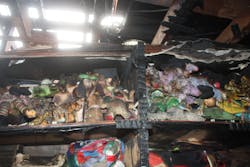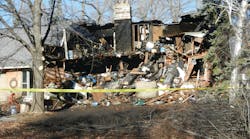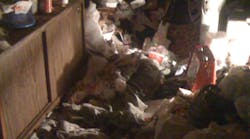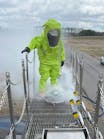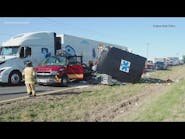When was the last time you got lucky? Before you start writing e-mails to the editors of Firehouse keep reading because getting lucky means an entirely different meaning in this blog post. For the past two years I have taken on the topic of emergency responses in hoarding environments. I stumbled across the topic following a series of EMS calls and fires inside what I believed was the typical cluttered environment.
What was truly amazing to me was the lack of education for first responders in relation to these conditions. From the days of Homer and Langley Collier in New York City, first responders have been dealing with overloaded structures for years. So why haven’t we adjusted or accounted for the difference in tactics and safety procedures when we are faced with heavy contents?
This concern hit me harder than a hit from James Harris running over opposing quarterbacks. How were we not paying enough attention to these overloaded structures? That’s when I started to research hoarding conditions. From Google alerts to Scanning firehouse for anything and everything that had to do with responses in hoarding conditions, I started reaching out to the first responders of the world and was amazed at what I heard. “We were lucky no one was killed” and “We were fortunate that...” were two of the many different phrases that I kept hearing.
Now, I understand that as firefighters we often get “lucky” that something bad didn't happen, but it’s time that we put away our lucky rabbits foot when we are dealing with hoarding conditions. It’s time we learn the ques and clues that can be spotted from the street, allow our crews to identify potential hoarding conditions before the fire happens, and adjust our tactics when fighting these challenging fires that are not bread and butter structural fires.
You might be saying to yourself "Ryan, we have been dealing with these problems for decades." And you are right, we have, but the amount of people afflicted with compulsive hoarding disorder have grown. In 2013 compulsive hoarding disorder has been added to the Diagnostic Statistical Manual used by our mental health professionals to treat different disorders. This new official diagnosis should open it up for funding to create more studies to help identify why and how people suffer from this disorder that creates huge problems for them and us.
It’s time that we remove the word "luck" from emergencies that happen inside a hoarding conditions. It’s time that we educate ourselves about the ins and outs of hoarding. We need to identify that hoarding is present, adjust our tactics as needed and attack these conditions with the determination that we have shown since the days the horses pulled our pumpers. You can find some ideas in the related content box on the left side of this page.
Compulsive hoarding disorder puts us, the firefighters, in a position that we should be aware of and not depending on our "luck" in order to bring us all home safe!
Here is a new mantra I would like you to think about: identify, adjust and attack for fires in heavy content environments!
